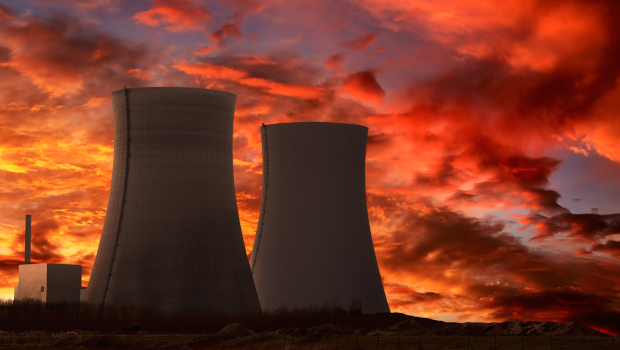
Is the nuclear question even worth asking?
We’ve all heard about the massive amount of energy that is going to be sucked up by artificial intelligence, but it’s still not something that most of us have processed properly. Which could be an argument for greater use of AI, I suppose.
Anyway, I must admit to being shocked by the figures bandied around at the Canalys Channel Forum in Berlin by its principal ESG analyst, Elsa Nightingale.
According to a report in MicroScope, she claimed AI was creating the “biggest existential crisis” that was threatening to derail the industry’s efforts to improve sustainability.
She pointed out, for example, that a query using ChatGPT gobbled up 866% more electricity than a simple Google search. That’s an awful lot more electricity just to avoid having to research and write something yourself. I can’t even begin to imagine what other everyday function might be affected in the same drastic fashion.
No wonder, then, Nightingale calculates that with around 9 billion searches on ChatGPT every day, data centre emissions could be “662% higher than we are currently estimating”. She claimed that emissions had “blown through the roof in the last couple of years”.
Needless to say, the tech industry is reacting to this unprecedented situation as it always has. It’s not trying to cut the emissions (in the same way as, with the data deluge, it didn’t try to reduce the amount of data with greater sifting and sorting of what was worth storing) but instead, is looking to throw more capacity at the problem.
There’s no need, at this point, to rehash the arguments and statistics concerning the number of data centres in Ireland and their disproportionate demands on our electricity grid, allied with the impact this has on this country’s overall emissions targets. Suffice to say that, wherever you stand on the issue of building more data centres in Ireland, the demands generated by AI could make most of your assumptions out of date.
There is no clearer supporting evidence for Nightingale’s argument that emissions are much higher than we are currently estimating than recent actions from the the likes of Google, AWS and Microsoft. To put it bluntly, they have literally ‘gone nuclear’ on this issue.
Google and Amazon have announced plans to build their own small modular nuclear reactors to power their data centres. Again, whatever the merits of nuclear power, it is quite extraordinary that companies are turning to the technology as a source of “clean energy”, although quite how clean and safe it is might be a bone of contention with anyone caught up in the aftermath of Chernobyl.
In that light, it’s even more astonishing that Microsoft has taken the extraordinary step of recommissioning the Three Mile Island nuclear reactor in the US. For those of you who aren’t aware of its history, the plant gained notoriety for a partial meltdown of one of its reactors in 1979 that made it the site of the worst accident in the history of commercial nuclear power plants in the US.
Amid all the hype around small modular reactors (SMRs), it might be worth reminding ourselves that, to date, only China and Russia have successfully built operational SMRs. And it still leaves the issue of what to do with the waste which, we should not need to remind ourselves, is definitely not environmentally friendly. How to safely store nuclear waste for thousands of years is something that is conveniently overlooked in most discussions around nuclear energy and, if the tech industry stays true to form, things won’t change for any SMRs that end up powering data centres in the future.
I’d suggest asking AI what to do, but by the time it’s able to provide a solution we might have used up more energy getting there than if we hadn’t bothered making it intelligent enough to answer at all.






Subscribers 0
Fans 0
Followers 0
Followers